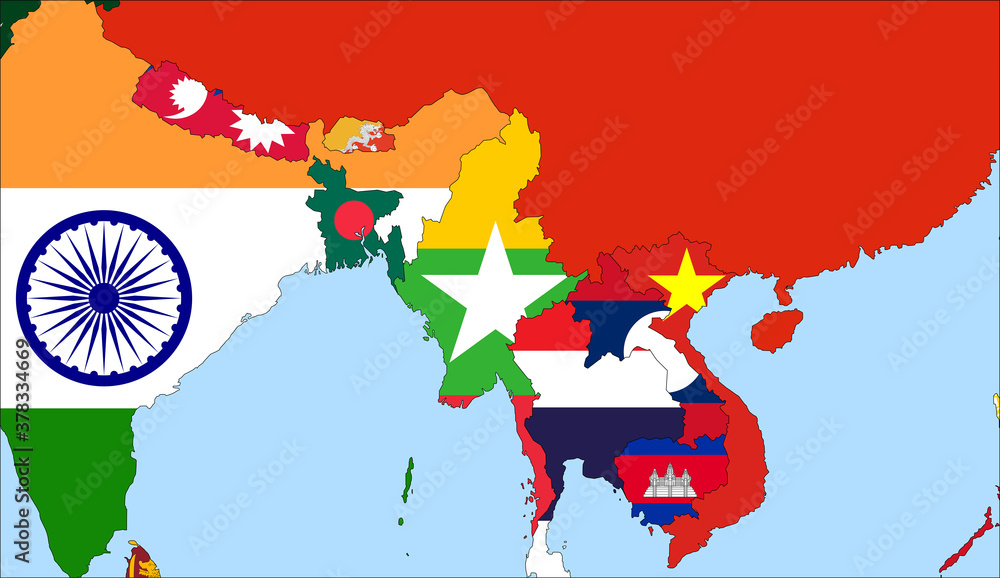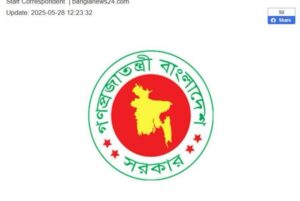Commentary: The SAC Junta’s Diplomatic Double Standard – Why Bangladesh Is Targeted While China Is Not
By MMNN Analysis Desk
The recent recall of Bangladesh’s Ambassador to Myanmar, Mr. Md Monowar Hossain, following allegations of contact between Bangladeshi officials and the Arakan Army (AA), has once again exposed a deeply troubling inconsistency in the Myanmar military regime’s foreign policy conduct.
According to Bangla News 24, the SAC-led military government formally lodged a protest with Dhaka, claiming that interactions with the AA constituted a breach of diplomatic norms. Within days, Bangladesh complied by recalling its ambassador and senior defense attaché—an unusual but telling gesture reflecting Bangladesh’s willingness to defuse tensions diplomatically.
Yet this swift escalation invites a fundamental question: Why is the Myanmar junta quick to protest and penalize Bangladesh for alleged contact with an ethnic armed group, while turning a blind eye—or even quietly cooperating—when it comes to China’s longstanding and well-documented engagements with other ethnic armed organizations within Myanmar’s borders?
The China Exception
Despite SAC’s outcry over Bangladesh, there is ample circumstantial evidence and credible international reporting suggesting that the People’s Republic of China has maintained extensive communication, negotiations, and even material support with a range of Ethnic Armed Organizations (EAOs), including those in northern Shan and Kachin states.
- China’s Strategic Relations with EAOs: Over the years, China has positioned itself as both a broker and a stakeholder in Myanmar’s internal conflicts. It has directly facilitated ceasefire talks and has supplied infrastructure, aid, and—according to some reports—military hardware to select EAOs, including groups in the Northern Alliance.
- Dual Strategy: This strategy serves Beijing’s interests in stabilizing its border regions while maintaining leverage over both the junta and EAOs. Yet, SAC has never formally protested this involvement. On the contrary, it continues to cultivate ties with Beijing—most visibly through economic dependencies such as the China-Myanmar Economic Corridor and the Kyaukpyu deep-sea port.
- No Diplomatic Recalls: There has never been a demand for Chinese diplomats to leave Naypyidaw nor any accusations of “diplomatic breaches” lodged publicly against Beijing, despite the transparency of its engagement with armed groups in border areas.
Unequal Responses Reflect Power Imbalances
This contrast reflects more than mere diplomatic oversight. It highlights a dangerous double standard rooted in geopolitical asymmetry and the SAC’s selective use of diplomatic norms.
Bangladesh, a democratic neighbor that has long borne the humanitarian burden of Myanmar’s crisis—most notably by hosting over a million Rohingya refugees—has often taken a cautious and respectful approach to its bilateral relations. Despite this, it now faces formal censure over unverified or informal contacts with a single ethnic group.
In contrast, China, with its vast economic influence, continues to enjoy immunity from scrutiny—even as its regional ambitions intersect directly with Myanmar’s sovereignty and internal conflicts.
The Larger Implications
The SAC’s disproportionate reaction to Bangladesh raises several troubling concerns:
- Instrumental Use of Diplomacy: Rather than applying principles consistently, SAC appears to weaponize diplomatic norms when convenient—targeting weaker or cooperative states while appeasing powerful patrons.
- Suppression of Accountability: The junta’s protest against Dhaka may be more about distracting domestic or international scrutiny than genuine concern for sovereignty. Especially when China’s deeper and wider engagement is tolerated, if not welcomed.
- Risk to Regional Stability: This approach risks alienating moderate regional partners like Bangladesh, while emboldening more dominant powers whose long-term strategic goals may not align with Myanmar’s national interest or sovereignty.
A Call for Consistency and Accountability
If the SAC regime claims to defend Myanmar’s sovereignty and diplomatic standards, it must apply these principles universally—regardless of the economic or political stature of the other party. Selective outrage undermines credibility and exposes the regime’s priorities: self-preservation over principled governance.
More importantly, if Myanmar’s military government seeks regional trust and legitimacy, it must demonstrate transparency, engage constructively with all neighbors, and end its pattern of weaponizing diplomacy while enabling impunity at home and abroad.
—
MMNN Editorial Desk
For inquiries: [email protected]





